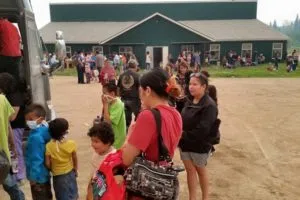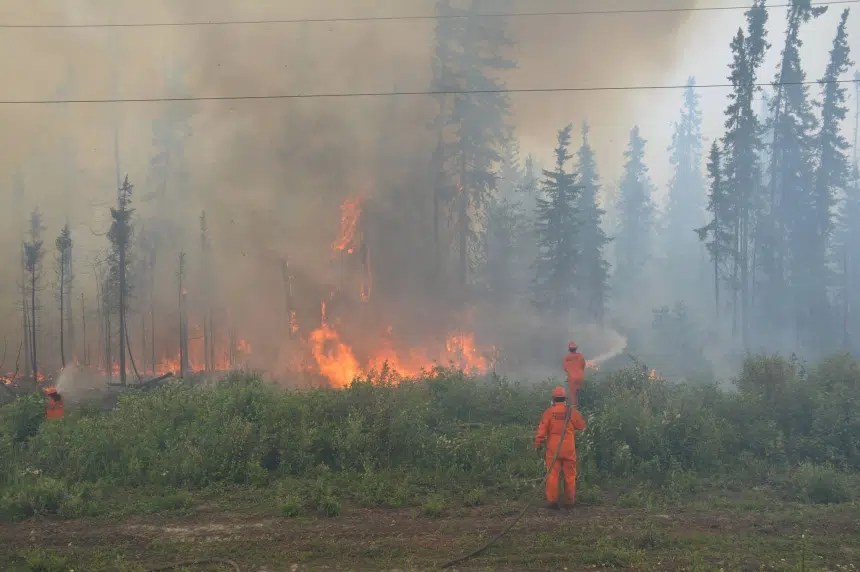All kinds of things in the province have been put on hold due to the COVID-19 pandemic — surgeries, retail, vacations — but one that won’t be paused is wildfire season.
The virus has become an important factor in emergency planning for wildfires, especially when it comes to northern communities which are at a high risk from fires but are also currently dealing with virus outbreaks.
According to the national fire season forecast from Natural Resources Canada, from May to September there is an above-average to well-above-average wildfire risk in Saskatchewan.
The Red Cross is one of the partners involved in emergency planning with the province and often provides help when emergencies do happen.
Kim MacLean is the acting vice-president for the Canadian Red Cross in Saskatchewan. She said planning for wildfire season started a few weeks ago and these days officials are working in a different environment and need to get creative with how they support communities.
“There’s a lot of considerations and, certainly, looking at how we could plan those pieces,” said MacLean.
In the past, MacLean said planning would have included things like how to support communities to shelter in place in an emergency, as well as different lodging methods in the event of a community evacuation like people staying with friends and family, congregating in shelters, or staying in hotels.
But MacLean said the thinking has had to change.
“(We’re) needing to keep in mind things like social distancing, proper hand-washing, the considerations around vulnerable populations that might be impacted by this. You have to take into account what that could potentially mean for evacuations and certainly, promoting trying to shelter in communities versus having to come out, if at all possible,” explained MacLean.
Evacuations aren’t overly rare in these cases. As recently as 2015, more than 3,000 people had to leave their northern communities in Saskatchewan and ended up being housed across the province and even in Alberta.
 Depending on the situation and the community, if there were a community evacuation now during the pandemic, people could be told not to stay with friends and family if it puts others at risk.
Depending on the situation and the community, if there were a community evacuation now during the pandemic, people could be told not to stay with friends and family if it puts others at risk.
Hotels could still be used as an option, but MacLean said the Red Cross would need to think about separation for people who are more vulnerable or those who pose a risk because they have COVID-19 symptoms.
Preparation for staff and volunteers is also a factor. MacLean said the Red Cross has been providing training to volunteers on personal protective equipment, physical distancing, and how to deliver services within the parameters set out by public health.
MacLean said COVID-19 hasn’t necessarily made things more difficult, but it has pushed officials to make sure everyone is at the table when planning — for example, having someone from the Ministry of Health around to provide the latest information on the virus.
The Red Cross works with local communities to come up with plans for them, and MacLean praised the work the communities have been doing to identify needs, where things can be done ahead of time, and ensuring that families could stay connected in the event of an evacuation.
Saskatchewan’s Public Safety Agency said planning is underway and it’s fully prepared to deal with wildfires and grassfires. It has crews and equipment in place.
In a statement, the agency said it’s available to help communities with creating emergency plans. The agency said it will make every effort to help communities shelter in place, including things like delivering food and air scrubbers.
And if an evacuation of a community needs to happen, the agency said it will assess immediate needs and address them with community leaders.
Chad Ryan, executive director of program support with the Ministry of Social Services, agreed in an emailed statement that planning is underway. That includes figuring out how to provide for people who are impacted by any emergencies and how to help those who are required to self-isolate.
Ryan said there are options like sheltering in place where possible and supporting hotel stays.











